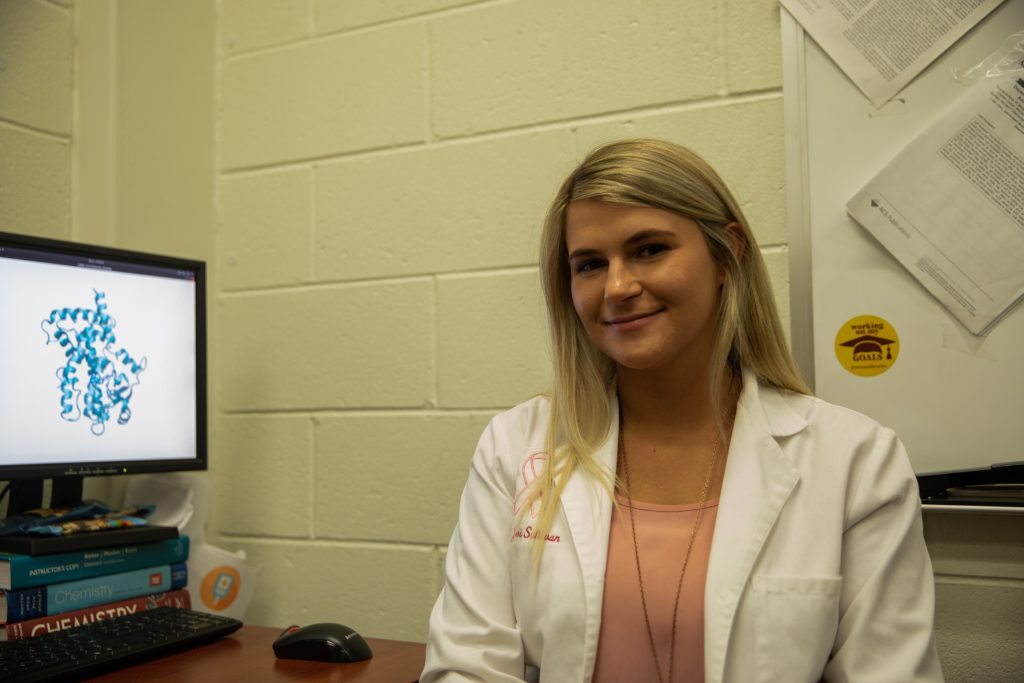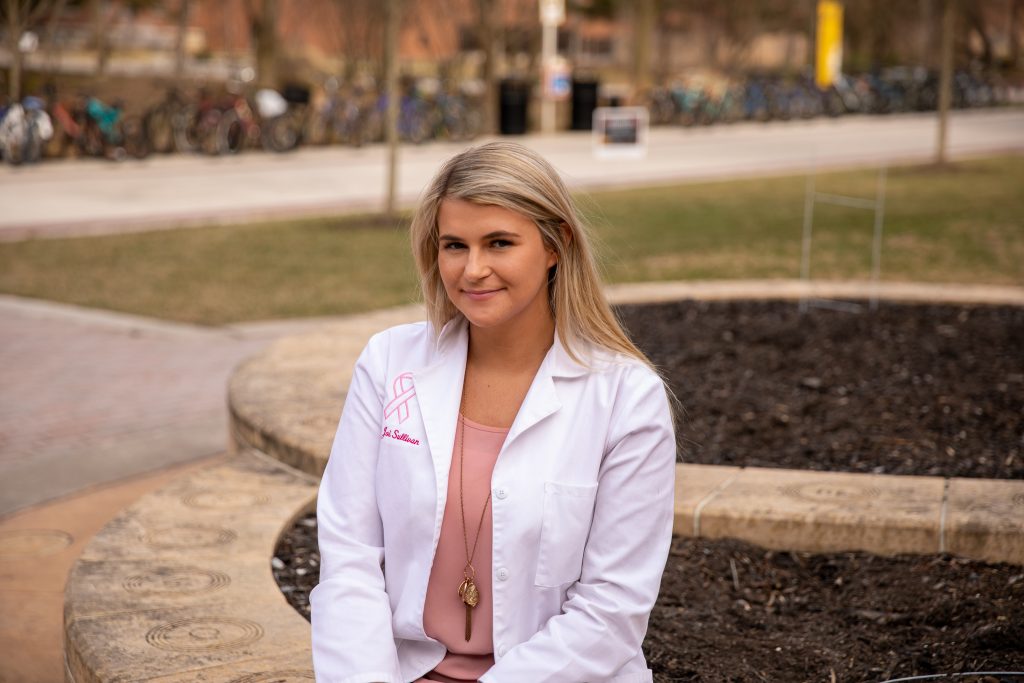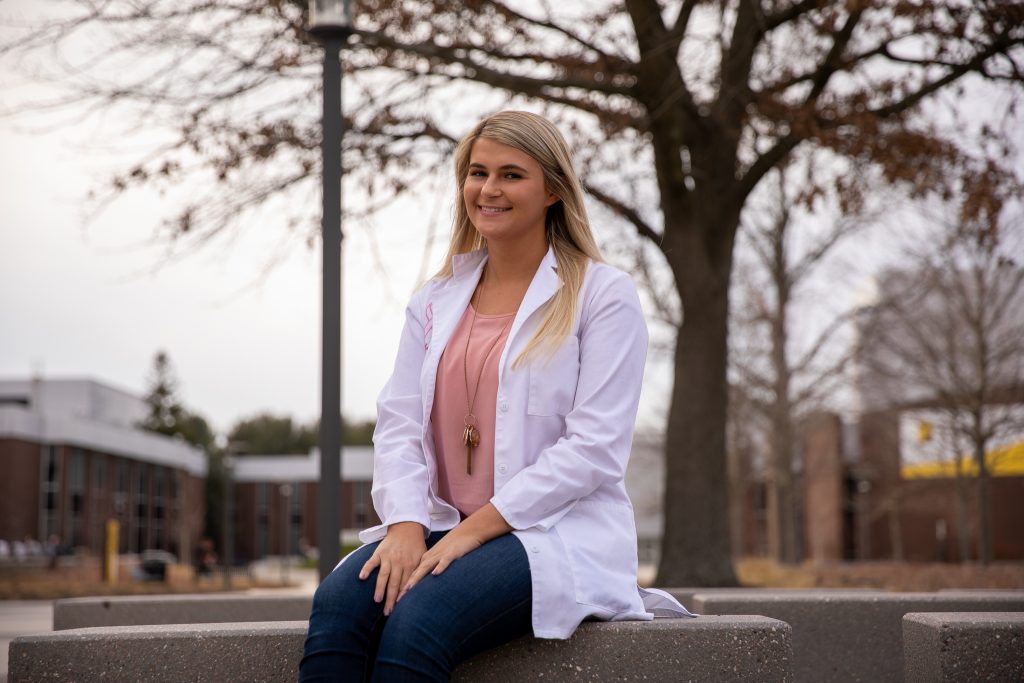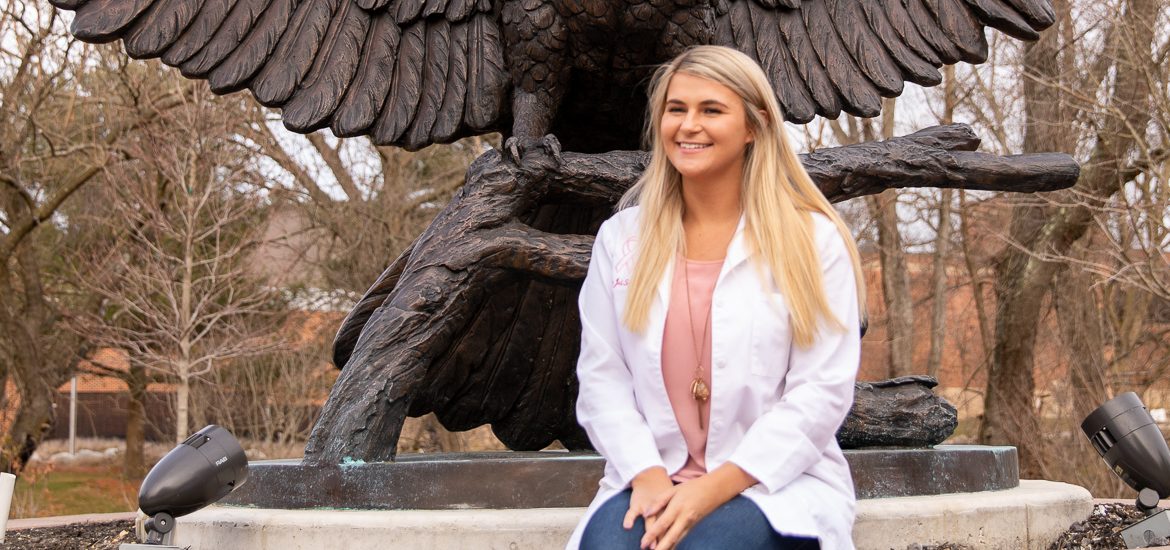A passionate graduate student who works on computer-aided drug and molecular dynamic simulations, Holli-Joi Sullivan’s research primarily focuses on different cancer and neurodegenerative disorders.
First drawn into this field after taking a course with Dr. Chun Wu, Holli-Joi has been in love with the work that she does every day since. A graduate student in the Pharmaceutical Sciences program, from Salem County, NJ, she will earn her degree this spring.
She and her fellow graduate students in the program study the binding interactions of small molecule drugs with their pharmacological relevant targets on the computer, which can help to expedite the process of drug discovery and help to improve the class of drugs overall.
Their main targets have been cancer, diabetes and different mental health disorders. They have also done work on Parkinson’s and other neurodegenerative disorders.
Holli-Joi’s main work throughout the program has been using anti-cancer agents on DNA and RNA G-quadruplexes. She and others have also studied the blinding of drugs to G protein-coupled receptors and nuclear receptors.

Through she and her fellow researchers’ work, they study the binding of drugs that are either well known or have been found by virtual screenings. By studying the binding they know the specific interactions at the molecular level that can explain crystal and NMR structures and even structures of complexes that have not yet been experimentally solved. This information provides dynamic insight, which leads to predictions that can be made to modify the drug, which they can first test and that can further be given to experimental collaborators. In these cases they buy the compounds that were predicted to be good binders from their computational analysis and their experimental collaborators can begin to test them in cell the models.
The first research study of this kind that Holli-Joi worked on under the program was for the D2 dopamine receptor. It was a collaboration with Dr. Thomas Keck whose lab is located in the Cooper Medical Center. During this project, they studied the binding of drugs that were targeting the beta-arrestin pathway and G protein pathway. They were trying to find ones that biased for beta-arrestin pathway to try and alleviate negative symptoms associated with taking medications to treat these neurodegenerative disorders such as Parkinson’s disease and schizophrenia. They first did a molecular dynamics simulation that is currently published and then they used their results to do a high throughput virtual screening.

She and others ended up finding lead compounds that they predicted would work as good binders to the D2 dopamine receptors. They bought those drugs and their collaborator, Dr. Keck, tested in them cell models and found that of 14 of them, six to nine of them were binding at nanomolar concentrations, which showed promise for them as drugs.
Currently, they are on their second generation of research; they are rescreening and optimizing the properties based on the feedback that they have received from Dr. Keck. After, they will test their second round of medications and hopefully move on to animal testing.

What she loves about the research is, “There’s not a lot of opportunities to do computational research the way that Dr. Wu does. It’s really a unique approach. It’s a valuable skill in industry research and in academic research if I decide to go down that road. It was a skill set that I wasn’t going to be able to find the exact same way anywhere else.”
Some of the professors that have had an impact in her life have been Dr. Chun Wu, Dr. Gregory Caputo, Dr. Neil Mucha and Dr. Thomas Keck.
“There are so many people that are willing to help you whether you know them or not. Literally, teachers, students, if you ask anybody, they’re willing to go above and beyond at Rowan to help you figure out what you need to know. Also, there are so many different opportunities to get involved in research. There are many different types of research going on in the department that there’s always going to be something that you’re going to be interested in … It’s really student-tailored to what we get to work on.” Throughout her time at Rowan, Holli-Joi has worked on 10 projects, six of which are published to date (published papers related to her research). Holli-Joi will be attending the Ph.D. program in Pharmaceutical Sciences at the University of North Carolina at Chapel Hill after graduation.
Like what you see?
Story and photography by:
Christian A. Browne, Communication Studies major



